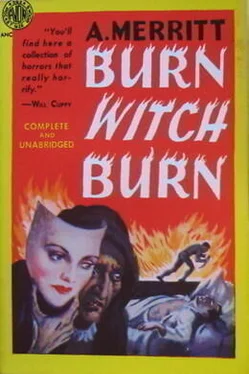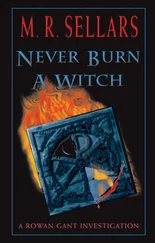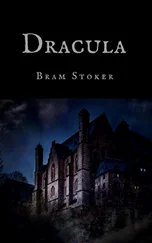"There are three ways a person can be killed by poison or by infection: through the nose—and this includes by gases—through the mouth and through the skin. There are two or three other avenues. Hamlet's father, for example, was poisoned, we read, through the ears, although I've always had my doubts about that. I think, pursuing the hypothesis of murder, we can bar out all approaches except mouth, nose, skin—and, by the last, entrance to the blood can be accomplished by absorption as well as by penetration. Was there any evidence whatever on the skin, in the membranes of the respiratory channels, in the throat, in the viscera, stomach, blood, nerves, brain—of anything of the sort?"
"You know there wasn't," he answered.
"Quite so. Then except for the problematical lighted corpuscle, there is absolutely no evidence of method. Therefore we have absolutely nothing in essential number one upon which to base a theory of murder. Let's take number two—opportunity.
"We have a tarnished lady, a racketeer, a respectable spinster, a bricklayer, an eleven–year–old schoolgirl, a banker, an acrobat and a trapeze performer. There, I submit, is about as incongruous a congregation as is possible. So far as we can tell, none of them except conceivably the circus men—and Peters and the Darnley woman— had anything in common. How could anyone, who had opportunity to come in close enough contact to Peters the racketeer to kill him, have equal opportunity to come in similar close contact with Ruth Bailey, the Social Registerite maiden lady? How could one who had found a way to make contact with banker Marshall come equally close to acrobat Standish? And so on—you perceive the difficulty? To administer whatever it was that caused the deaths—if they were murder—could have been no casual matter. It implies a certain degree of intimacy. You agree?"
"Partly," he conceded.
"Had all lived in the same neighborhood, we might assume that they might normally have come within range of the hypothetical killer. But they did not—"
"Pardon me, Dr. Lowell," Ricori interrupted, "but suppose they had some common interest which brought them within that range."
"What possible common interest could so divergent a group have had?"
"One common interest is very plainly indicated in these reports and in what McCann has told us."
"What do you mean, Ricori?"
"Babies," he answered. "Or at least—children."
Braile nodded: "I noticed that."
"Consider the reports," Ricori went on. "Miss Bailey is described as charitable and devoted to children. Her charities, presumably, took the form of helping them. Marshall, the banker, was interested in child–welfare. The bricklayer, the acrobat and the trapeze performer had children. Anita was a child. Peters and the Darnley woman were, to use McCann's expression, 'daffy' over a baby."
"But," I objected, "if they are murders, they are the work of one hand. It is beyond range of possibility that all of the eight were interested in one baby, one child, or one group of children."
"Very true," said Braile. "But all could have been interested in one especial, peculiar thing which they believed would be of benefit to or would delight the child or children to whom each was devoted. And that peculiar article might be obtainable in only one place. If we could find that this is the fact, then certainly that place would bear investigation."
"It is," I said, "undeniably worth looking into. Yet it seems to me that the common–interest idea works two ways. The homes of those who died might have had something of common interest to an individual. The murderer, for example, might be a radio adjuster. Or a plumber. Or a collector. An electrician, and so and so on."
Braile shrugged a shoulder. Ricori did not answer; he sat deep in thought, as though he had not heard me.
"Please listen, Ricori," I said. "We've gotten this far. Method of murder—if it is murder—unknown. Opportunity for killing—find some person whose business, profession or what not was a matter of interest to each of the eight, and whom they visited or who visited them; said business being concerned, possibly, in some way with babies or older children. Now for motive. Revenge, gain, love, hate, jealousy, self– protection? None of these seems to fit, for again we come to that barrier of dissimilar stations in life."
"How about the satisfaction of an appetite for death—wouldn't you call that a motive?" asked Braile, oddly. Ricori half rose from his chair, stared at him with a curious intentness; then sank back, but I noticed he was now all alert.
"I was about to discuss the possibility of a homicidal maniac," I said, somewhat testily.
"That's not exactly what I mean. You remember Longfellow's lines:
'I shot an arrow into the air. It fell to earth I know not where.'
"I've never acquiesced in the idea that that was an inspired bit of verse meaning the sending of an argosy to some unknown port and getting it back with a surprise cargo of ivory and peacocks, apes and precious stones. There are some people who can't stand at a window high above a busy street, or on top of a skyscraper, without wanting to throw something down. They get a thrill in wondering who or what will be hit. The feeling of power. It's a bit like being God and unloosing the pestilence upon the just and the unjust alike. Longfellow must have been one of those people. In his heart, he wanted to shoot a real arrow and then mull over in his imagination whether it had dropped in somebody's eye, hit a heart, or just missed someone and skewered a stray dog. Carry this on a little further. Give one of these people power and opportunity to loose death at random, death whose cause he is sure cannot be detected. He sits in his obscurity, in safety, a god of death. With no special malice against anyone, perhaps—impersonal, just shooting his arrows in the air, like Longfellow's archer, for the fun of it."
"And you wouldn't call such a person a homicidal maniac?" I asked, dryly.
"Not necessarily. Merely free of inhibitions against killing. He might have no consciousness of wrongdoing whatever. Everybody comes into this world under sentence of death—time and method of execution unknown. Well, this killer might consider himself as natural as death itself. No one who believes that things on earth are run by an all– wise, all–powerful God thinks of Him as a homicidal maniac. Yet He looses wars, pestilences, misery, disease, floods, earthquakes—on believers and unbelievers alike. If you believe things are in the hands of what is vaguely termed Fate—would you call Fate a homicidal maniac?"
"Your hypothetical archer," I said, "looses a singularly unpleasant arrow, Braile. Also, the discussion is growing far too metaphysical for a simple scientist like me. Ricori, I can't lay this matter before the police. They would listen politely and laugh heartily after I had gone. If I told all that is in my mind to the medical authorities, they would deplore the decadence of a hitherto honored intellect. And I would rather not call in any private detective agency to pursue inquiries."
"What do you want me to do?" he asked.
"You have unusual resources," I answered. "I want you to sift every movement of Peters and Hortense Darnley for the past two months. I want you to do all that is possible in the same way with the others—"
I hesitated.
"I want you to find that one place to which, because of their love for children, each of these unfortunates was drawn. For though my reason tells me you and Braile have not the slightest real evidence upon which to base your suspicions, I grudgingly admit to you that I have a feeling you may be right."
"You progress, Dr. Lowell," Ricori said, formally. "I predict that it will not be long before you will as grudgingly admit the possibility of my witch."
Читать дальше










